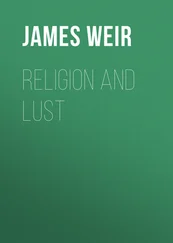James Walsh - Religion And Health
Здесь есть возможность читать онлайн «James Walsh - Religion And Health» — ознакомительный отрывок электронной книги совершенно бесплатно, а после прочтения отрывка купить полную версию. В некоторых случаях можно слушать аудио, скачать через торрент в формате fb2 и присутствует краткое содержание. Жанр: foreign_prose, foreign_religion, Здоровье, foreign_antique, на английском языке. Описание произведения, (предисловие) а так же отзывы посетителей доступны на портале библиотеки ЛибКат.
- Название:Religion And Health
- Автор:
- Жанр:
- Год:неизвестен
- ISBN:нет данных
- Рейтинг книги:4 / 5. Голосов: 1
-
Избранное:Добавить в избранное
- Отзывы:
-
Ваша оценка:
- 80
- 1
- 2
- 3
- 4
- 5
Religion And Health: краткое содержание, описание и аннотация
Предлагаем к чтению аннотацию, описание, краткое содержание или предисловие (зависит от того, что написал сам автор книги «Religion And Health»). Если вы не нашли необходимую информацию о книге — напишите в комментариях, мы постараемся отыскать её.
Religion And Health — читать онлайн ознакомительный отрывок
Ниже представлен текст книги, разбитый по страницам. Система сохранения места последней прочитанной страницы, позволяет с удобством читать онлайн бесплатно книгу «Religion And Health», без необходимости каждый раз заново искать на чём Вы остановились. Поставьте закладку, и сможете в любой момент перейти на страницу, на которой закончили чтение.
Интервал:
Закладка:
Ohm, after whom another of the units of electricity is named, was another of the scientists who realized very clearly the existence of Providence and in one very disappointing circumstance in life, when he found that some of his work at which he had spent much time was completely anticipated by a Norwegian investigator, he said very simply, "Man proposes but God disposes"; and he chronicled the fact that without the bait of this discovery which he vaguely foresaw at the beginning he would not have taken up the work, and yet during the time when he was at it "A number of things of which I had no hint at all at the beginning of my researches have come to take the place of my original purpose and compensate for it." When he undertook his next work he foresaw that he might not be able to finish it; he had hoped against hope that he would, and in the preface to the first volume he declared that he would devote himself to it at every possible opportunity and that he hoped and prayed that "God would spare him to complete it." This simplicity of confidence in the Almighty is indeed a striking characteristic of the man of whose discovery of the law of electricity Lord Kelvin declared that it was such an extremely simple expression of a great truth that its significance is probably not confined to that department of physical phenomena, but it is a law of nature in some much broader way. Professor George Chrystal of Edinburgh in his article on electricity in the "Encyclopaedia Britannica" (IX Edition) says that Ohm's law must now be allowed to rank with the law of gravitation and the elementary laws of statical electricity as a law of nature in the strictest sense.
Volta, whom the international congress of electricity so deservedly honored by giving his name to one of the units of electricity, is the genius who first constructed an instrument which would give a continuous flow of electricity. The Voltaic pile is a very great invention. Volta was much more, however, than merely an ingenious inventor. He was a great scientist who made discoveries not only in electricity but in various other branches of physical science. He was one of the eight foreign members of the French Institute, Knight Commander of the Legion of Honor, one of the first members of the Italian Academy and the gold medalist of the French Academy. There was nothing he touched in his work that he did not illuminate.
His was typically the mind of the genius, ever reaching out beyond the boundaries of the known,—an abundant source of leading and light for others. Far from being a doubter in matters religious, his scientific greatness seemed only to make him readier to submit to what are sometimes spoken of as the shackles of faith, though to him belief appealed as a completion of knowledge of things beyond the domain of sense or the ordinary powers of intellectual acquisition.
In Volta's time as in our own some of the less important workers in science had their faith disturbed by their knowledge of science and attributed that result to science rather than to the limitations of their own minds. One of them declared that though Volta continued to practice his religion, this was more because he did not want to offend friends and did not care to scandalize his neighbors and especially the poor folk around him in his country home, whom he did not want to be led by his example into giving up what he knew to be the most fruitful source of consolation in the trials of life, rather than because of sincere conviction. Volta, having heard this report, deliberately wrote out his confession of faith, so that all the world of his own and the after time might know it. When he wrote it he was just approaching his sixtieth year and was in the full maturity of his powers. He lived for twelve years afterwards, looked up to as one of the great thinkers of Europe and as one of the most important men of Italy in his time.
"If some of my faults and negligences may have by chance given occasion to some one to suspect me of infidelity, I am ready, as some reparation for this and for any other good purpose, to declare to such a one and to every other person and on every occasion and under all circumstances that I have always held, and hold now, the Holy Catholic Religion as the only true and infallible one, thanking without end the good God for having gifted me with such a faith, in which I firmly propose to live and die, in the lively hope of attaining eternal life. I recognize my faith as a gift of God, a supernatural faith. I have not, on this account, however, neglected to use all human means that could confirm me more and more in it and that might drive away any doubt which could arise to tempt me in matters of faith. I have studied my faith with attention as to its foundations, reading for this purpose books of apologetics as well as those written with a contrary purpose, and trying to appreciate the arguments pro and contra. I have tried to realize from what sources spring the strongest arguments which render faith most credible to natural reason and such as cannot fail to make every well-balanced mind which has not been perverted by vice or passion embrace it and love it. May this protest of mine, which I have deliberately drawn up and which I leave to posterity, subscribed with my own hand and which shows to all and every one that I do not blush at the Gospel—may it, as I have said, produce some good fruit.
"Signed at Milan, January 6, 1815, Alessandro Volta."
Silvio Pellico, whose volume, "My Ten Years' Imprisonment", is one of the precious little books of literature that seem destined to enduring interest, had doubted in the midst of his trials and hardships the presence of Providence in the world and the existence of a hereafter. In the midst of his doubts he turned to Volta.
"In thy old age, O Volta!" said Pellico, "the hand of Providence placed in thy pathway a young man gone astray. 'Oh! thou,' said I to the ancient seer, 'who hast plunged deeper than others into the secrets of the Creator, teach me the road that will lead me to the light.' And the old man made answer: 'I too have doubted, but I have sought. The great scandal of my youth was to behold the teachers of those days lay hold of science to combat religion. For me to-day I see only God everywhere.'"
In spite of traditions to the contrary great physicians in their relation to faith are like the great discoverers in electricity. As a rule the greater they are as original workers in the medical sciences the more emphatic their expressions of their belief in religion and its efficacy in the relief of human ills. The opinions of a few of our greatest physicians in the modern era of medicine are quoted here as examples of their attitude of mind.
Sir Richard Owen, probably the greatest anatomist of the nineteenth century, was a convinced Christian and saw nothing in scientific truth inimical to the Christian faith. In an address before the Young Men's Christian Association, he asked his "fellow Christians":
"Has aught that is essentially Christian suffered—have its truths ceased to spread and operate in mankind—since physical doctrines, supposed or 'declared contrary to Holy Writ', have been established?
"Allay, then, your fears, and trust in the Author of all truth, who has decreed that it shall never perish; who has given a power to man to acquire that most precious of his possessions with an intellectual nature that will ultimately rest upon due demonstrative evidence."
Sir James Paget, sometime president of the Royal College of Surgeons of England and vice-chancellor of London University, looked upon as one of the most distinguished of medical scientists in his time, after whom a special disease described by him has been named, in answer to the question as to the attitude of scientists toward religion said: "You will find among scientific men very few who attack either theology or religion. The attacks imputed to them are made, for the most part, by those who, with a very scanty knowledge of science, use, not its facts, but its most distant inferences, as they do whatever else they can get from any source, for the overthrow of religious beliefs."
Читать дальшеИнтервал:
Закладка:
Похожие книги на «Religion And Health»
Представляем Вашему вниманию похожие книги на «Religion And Health» списком для выбора. Мы отобрали схожую по названию и смыслу литературу в надежде предоставить читателям больше вариантов отыскать новые, интересные, ещё непрочитанные произведения.
Обсуждение, отзывы о книге «Religion And Health» и просто собственные мнения читателей. Оставьте ваши комментарии, напишите, что Вы думаете о произведении, его смысле или главных героях. Укажите что конкретно понравилось, а что нет, и почему Вы так считаете.












